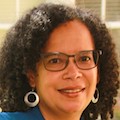 A new report published by the Latino Policy & Politics Institute at the University of California, Los Angeles finds that the Afro-Latino population in the United States has grown at nearly twice the rate of non-Black Latinos since the beginning of the century. And the reports found that despite having higher educational attainment than non-Black Latinos, Afro-Latinos face worse outcomes in key areas including income and homeownership.
A new report published by the Latino Policy & Politics Institute at the University of California, Los Angeles finds that the Afro-Latino population in the United States has grown at nearly twice the rate of non-Black Latinos since the beginning of the century. And the reports found that despite having higher educational attainment than non-Black Latinos, Afro-Latinos face worse outcomes in key areas including income and homeownership.
Afro-Latinos are defined in the report as people who are both ethnically Latino and racially Black.
Some of the key findings in the report are:
* In 2019, there were 2.2 million Afro-Latinos in the United States, compared to 978,000 in 2000, an increase of 120 percent.
* Afro-Latinos have lower homeownership rates, 40.6 percent for Afro-Latinos versus 54 percent for non-Black Latinos.
* Afro-Latinos had a median household income in 2019 of $47,400 compared to a median income of $52,100 for non-Black Latinos.
* In 2019, Afro-Latinos experienced a poverty rate of 23 percent, three percentage points higher than the poverty rate of non-Black Latinos.
* More than one quarter of Afro-Latinas completed a college degree, compared with 18 percent of non-Black Latinas. Some 20 percent of Afro-Latinos completed a bachelor’s degree or higher, compared with 15 percent of non-Black Latino men.



As I prepare to someday soon submit my proposal for my doctoral dissertation regarding Afro-Latino male community college students, this important research will be invaluable to me. Thank you.